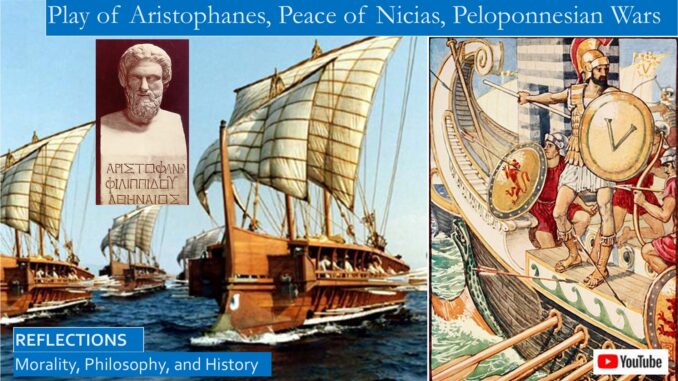
Although many people in Athens and Sparta were opposed to the Peace of Nicias, and definitely most Spartan allies opposed the peace, many Athenians and Spartans were weary of war, so the peace did somewhat hold for six years. The play “Peace” by Aristophanes won second prize at the Dionysian Festival just a few days before the ratification of the Peace of Nicias, it celebrates the peace and a return to the idyllic life in the countryside. This play, the Peace, reflects the yearning of many Greeks for peace at last. [1] We will excerpt the most humorous and revealing lines from this play:
This Peace opens with the servants kneading what appears to be dough for bread, but no, this is not dough, but rather, as the servants of Trygaeus complain,
“There’s no more loathly miserable task,
Than to be mashing dung to feed a beetle.”
YouTube video for this blog: https://youtu.be/UHRzKH-asoo
YouTube script with more book links: https://www.slideshare.net/BruceStrom1/aristophanes-comedy-on-the-peace-of-nicias-peloponnesian-wars
Link to view complete series of blogs on the Peloponnesian Wars:
https://seekingvirtueandwisdom.com/category/peloponnesian-wars/
Link to view complete series of videos on the Peloponnesian Wars:
https://www.youtube.com/watch?v=szi7-9QQWI0&list=PLJVlY2bjK8lg2pivnGN3m13VI8YstKs0T
Which beetle is this? The giant dung-beetle on which Trygaeus enters the stage, with wings spread. One of his daughters asks him:
“O father, can it be true,
The tale that is come to our ears about you,
That along with the birds you are going to go,
And to leave us alone and be off to the crow?”
Trygaeus seeks to fly to Olympus to entreat the gods to end this terrible war. His daughter asks him,
“Girl: What will be your method of passage?
Ships will not do: they cannot go this journey.
Trygaeus: I will ride a steed with wings: no ships for me.
Girl: But what’s the wit of harnessing a beetle
To ride on it to heaven, papa, papa?
Trygaeus: It is the only living this with wings,
So Aesop says, that ever reached the gods.
Girl: O father, father, that’s too good a story
That such a stinking brute should enter heaven.
Should you not have harnessed Pegasus, the flying horse,
And so, in tragic style, approach the gods?
Trygaeus: Nay, then I must have had supplies for two,
But now the very food I eat myself,
All this will presently be food for him.”[2]
Aristophanes was known for his clever and scatological bathroom humor, both are in full play here, because many Greeks would know that the scarab, or amulet of a dung beetle, is quite popular in Egypt, and perhaps some scarab seals and amulets found their way to Greece. In Egyptian mythology, the dung beetle, or Khepri, represented the god Ra, who everyday pushed the newly created sun across the sky, in the same way that scarabs, or dung beetles, push large balls of dung across the ground.[3] So, it is not too far-fetched to ride on the back of dung beetles to heaven.
So, our hero Trygaeus flies to heaven, or Mount Olympus, on the back of his dung beetle, but the only god he finds at first is Hermes. The Greek audience would also remember that Hermes makes an appearance in the Odyssey, where he sends a message from the gods to Calypso that she allows Odysseus to return home to his wife, Penelope. Here Hermes is delivering a message from the gods to Trygaeus.
“Trygaeus: What is the reason the gods went away?
Hermes: They were so vexed with Hellas: therefore here,
Where they were dwelling, they’ve established War,
And given you up entirely to his will.
But the gods themselves have settled up aloft,
As high as they can go; that they no more
May see your fighting or hear your prayers.”
Trygaeus inquires of Hermes: “Where has Peace gone to?
Hermes: War has blockades her in a deep, deep pit.
Trygaeus: Where?
Hermes: Here, beneath our feet. And you may see
The heavy stones he piled up about its mouth,
That none should take her out.”
There is a reference to a lady Peace in Plutarch’s Life of Nicias: “When an oracle commanded them to fetch the priestess of Athena from Clazomenae, they sent for the woman, and her name was Peace! This was apparently the god’s way of advising the city to keep the peace for the time being.”[4]
Then War enters, bearing a gigantic mortar, in which he is about to mix a salad, followed by Riot. War asks Riot: “Run in and get a pestle.”
Riot cannot find a pestle, and after looking, Riot answers War:
The pestle the Athenians had is lost,
The tanner fellow who disturbed all Hellas,”
And Aristophanes is referring to Cleon, the Athenian demagogue and incompetent general who recently died on the battlefield.
“War: Then run away and fetch from Lacedaemon, another pestle.
Riot: O, Sir, the Spartans too have lost their pestle.
War: How so, you rascal?
Riot: Why, they lent it out,
To friends Thrace-ward, and they lost it there.”
And Aristophanes is referring to Brasidas, the Spartan general who recently died on the same battlefield.
“War: Pick up the things, and carry them away,
I will go and make myself a pestle.” And War and Riot exit the stage.
A few pages later, Trygaeus, Hermes, and the Chorus help pull Peace, and her two attendants out of their pit. With peace released, the Spartans no longer annually ravish the fields and crops of Athens, no longer do they destroy the houses and olive trees.
Trygaeus sings: “Comrades, which to Peace we owe,
All the life of ease and comfort
Which she gave us long ago:
Figs and olives, wine and myrtles,
Luscious fruits preserved and dried,
Banks of fragrant violets, blowing
By the crystal fountain’s side;
Scenes for which our hearts are yearning,
Joys that we have missed so long,
Comrades, here is Peace returning,
Greet her back with dance and song!
Chorus: Welcome, welcome, best and dearest,
Welcome, welcome, welcome home, Peace,
We have looked and longed for thee,
Looking, longing, wondrously,
Once again for our farms to see.
O the joy, the bliss, the rapture,
really to behold thee come.
Peace was our chief enjoyment,
Peace was our greatest gain.”
The chorus asks Hermes, “Where has Peace been hiding?”
Hermes responds,
“Phidias began the mischief,
having come to grief and shame.
Pericles was next in order,
fearing he might share the blame,”
“By his Megara enactment,
setting all the war ablaze.
Such a bitter smoke ascended,
setting all the world ablaze.”[5]
The Persians had torn down and burnt the many temples and statues on the Acropolis in Athens in the Greco-Persian wars. Phidias was an architect and friend of Pericles who rebuilt the Acropolis and Parthenon, these marvels that thrill tourists today were paid for by tribute paid by the Athenian allies.
Many of Pericles’ enemies were critical of the exorbitant costs of this building program, Plutarch quotes them, “The Greek regard it as outrageously arrogant treatment, as blatant tyranny, when they can see that we are using the funds they were forced to contribute for the military defense of Greece to gild and embellish our city, as if she were a vain woman adorning herself with costly marble, statues, and temples at a thousand talents at a time.”[6] For comparison, one talent was months pay for the hundreds of rowers needed to man a trireme.[7]
This tribute was paid to Athens by the members of the Delian League, who were mostly Greek city-states on the islands and the coasts of the Aegean Sea, to pay for the common defense against the Persian Empire. The Delian League evolved into the Athenian Empire after Pericles moved the League treasury from the island of Delos to Athens, so the Athenians could more readily access these funds for their building programs.
Pericles strategy to avoid open contest between Spartan and Athenian hoplites in front of the walls of Attica, opting to instead to take to the ships and fight a war of attrition with Sparta and her allies, in turn raiding their fields and towns, and interfering with their trade and food supplies, truly deepened the hatred that Greeks felt towards their enemies, on both the Athenian and Spartan sides. This was not noble Homeric combat; this was endless pillage and slaughter. Add to that the suffering the Athenians endured crowed behind their Long Walls during the Plague, and you can easily understand why Pericles was blamed for the outbreak of war.
[1] https://en.wikipedia.org/wiki/Peace_(play)
[2] Aristophanes, The Peace, Great Books of the Western World, Volume 5, Aeschylus, Sophocles, Euripides, Aristophanes, translated by Bickley Rogers (Chicago: Encyclopedia Britannica, Inc., 1952, originally 421 BC), lines 110-140, pp. 526-527.
[3] https://en.wikipedia.org/wiki/Ra and https://en.wikipedia.org/wiki/Khepri
[4] Plutarch, Greek Lives, Nicias, Chapter 13, p. 198.
[5] Aristophanes, The Peace, lines 210-612, pp. 528-532.
[6] Plutarch, Greek Lives, Pericles, Chapter 12, p. 155.

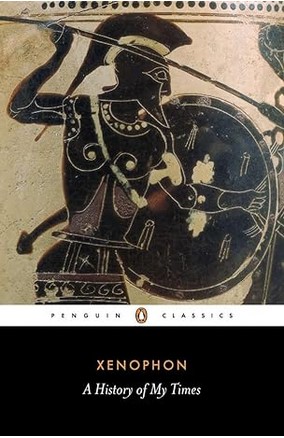
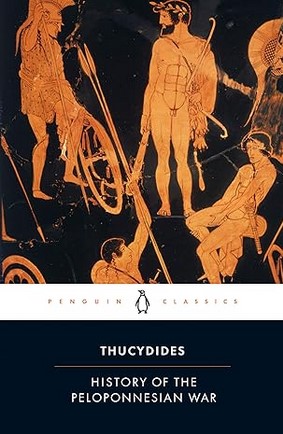
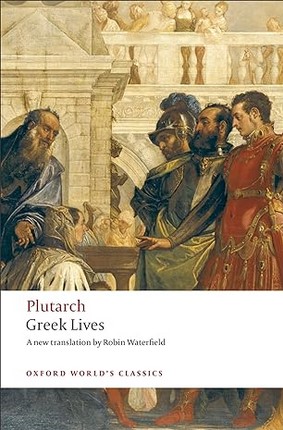

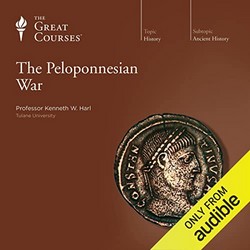
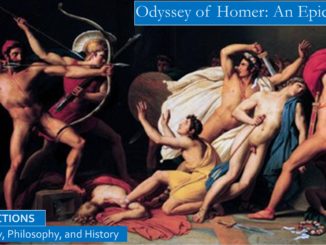
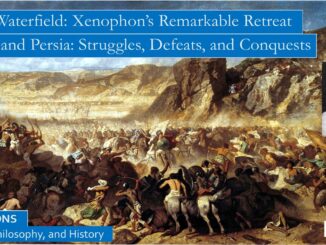
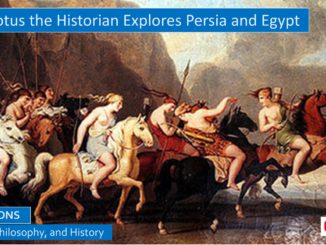
Be the first to comment